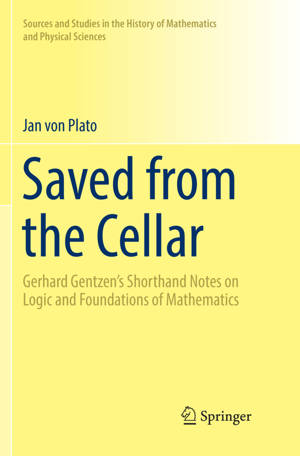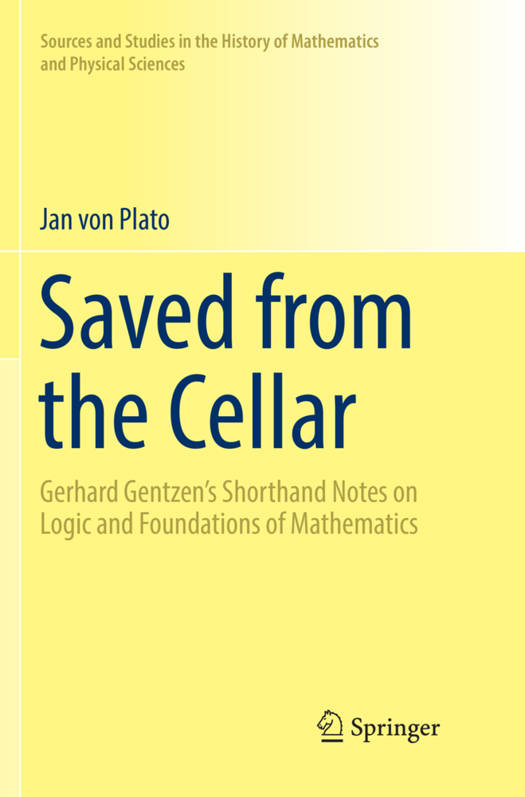
Bedankt voor het vertrouwen het afgelopen jaar! Om jou te bedanken bieden we GRATIS verzending (in België) aan op alles gedurende de hele maand januari.
- Afhalen na 1 uur in een winkel met voorraad
- In januari gratis thuislevering in België
- Ruim aanbod met 7 miljoen producten
Bedankt voor het vertrouwen het afgelopen jaar! Om jou te bedanken bieden we GRATIS verzending (in België) aan op alles gedurende de hele maand januari.
- Afhalen na 1 uur in een winkel met voorraad
- In januari gratis thuislevering in België
- Ruim aanbod met 7 miljoen producten
Zoeken
Saved from the Cellar
Gerhard Gentzen's Shorthand Notes on Logic and Foundations of Mathematics
Jan Von Plato
€ 259,45
+ 518 punten
Uitvoering
Omschrijving
Gerhard Gentzen is best known for his development of the proof systems of natural deduction and sequent calculus, central in many areas of logic and computer science today. Another noteworthy achievement is his resolution of the embarrassing situation created by Gödel's incompleteness results, especially the second one about the unprovability of consistency of elementary arithmetic. After these successes, Gentzen dedicated the rest of his short life to the main problem of Hilbert's proof theory, the question of the consistency of analysis. He was arrested in the summer of 1945 with other professors of the German University of Prague and died soon afterward of starvation in a prison cell. Attempts at locating his lost manuscripts failed at the time, but several decades later, two slim folders of shorthand notes were found. In this volume, Jan von Plato gives an overview of Gentzen's life and scientific achievements, based on detailed archival and systematic studies, and essential for placing the translations of shorthand manuscripts that follow in the right setting. The materials in this book are singular in the way they show the birth and development of Gentzen's central ideas and results, sometimes in a well-developed form, and other times as flashes into the anatomy of the workings of a unique mind.
Specificaties
Betrokkenen
- Auteur(s):
- Uitgeverij:
Inhoud
- Aantal bladzijden:
- 315
- Taal:
- Engels
- Reeks:
Eigenschappen
- Productcode (EAN):
- 9783319825021
- Verschijningsdatum:
- 17/07/2018
- Uitvoering:
- Paperback
- Formaat:
- Trade paperback (VS)
- Afmetingen:
- 156 mm x 234 mm
- Gewicht:
- 503 g

Alleen bij Standaard Boekhandel
+ 518 punten op je klantenkaart van Standaard Boekhandel
Beoordelingen
We publiceren alleen reviews die voldoen aan de voorwaarden voor reviews. Bekijk onze voorwaarden voor reviews.









